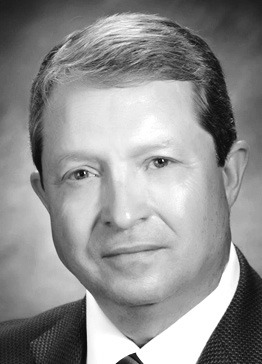The Trump Plan centered on tariffs veiled in a cloak of secrecy has now been clearly defined. On April 7th, Stephen Miran—Trump’ s top economic advisor and a Senior Strategist at Hudson Bay Capital with a Ph.D. in economics from Harvard—publicly articulated the strategy behind ‘Trump’s Monetary Reset’ during a speech at the Hudson Institute (transcript on White-House.gov). Only days after Trump’s victory in November, Miran published ‘A User’s Guide to Restructuring the Global Trading System’, a 40-page report detailing the framework for a possible Trump plan to reform the international trade- financial systems (Source: Hudson Bay Capital).
Miran first defined the Problem: After WWII the Dollar was made the Global Reserve Currency which is a burden that America has now carried for over 80-years as it results in “persistent dollar overvaluation that prevents the balancing of international trade, and this overvaluation is driven by unrealistic demand for reserve assets.” Simply stated, the U.S. has run up substantial trade deficits as the expensive dollar makes its products noncompetitive in the global marketplace.
Furthermore, the U.S. was also required to carry the defense burden of the world. “As global GDP grew, it became increasingly burdensome for the United States to finance both the provision of reserve assets and the defense umbrella for everyone else.” This burden kept the world economy running, but resulted in the U.S. running unsustainable deficits, ballooning debt, mounting interest payments, and a hollowed-out manufacturing base that is now becoming a national security risk—while simultaneously decimating many working-class families and their communities. Something must change, and quickly!
Miran’s proposed Solution: The U.S. provides two critical “global public goods” that are very costly: the security umbrella, and the Dollar and Treasury securities (global reserve currency) to run the global trading-financial system--both for the benefit of the rest of the world. It is now time for the global community to share in the burden of paying for these two “global public goods”. Accordingly, Miran suggests that friendly countries (1) accept tariffs without retaliation; (2) stop unfair trading practices and start buying more from America; (3) increase defense spending by buying from America; (4) build factories in America and avoid tariffs; (5) simply write checks to Treasury to help finance “global public goods.” Unfriendly countries will have higher tariffs.
Miran concludes: “There is a path by which the Trump Administration can reconfigure the global trading-financial systems to America’s benefit, but it is narrow and will require careful planning to minimize adverse consequences— reducing inflation is critical and prioritization of supply side liberalization with aggressive deregulation will boost potential growth and reduce inflation—tariffs deserve extra mention because most economists dismiss them as counterproductive to devastatingly harmful; they’re WRONG!” Steve Gardes is a Certified Public Accountant (CPA) and Certified Valuation Analyst (CVA) with over 40 years of public accounting experience.


